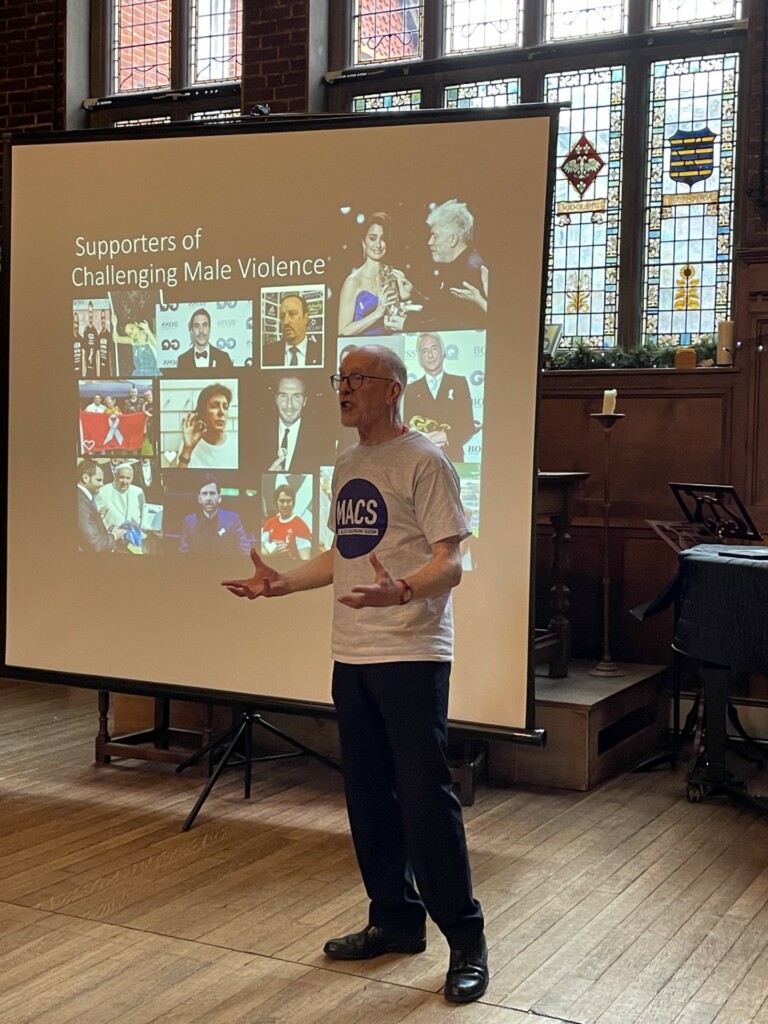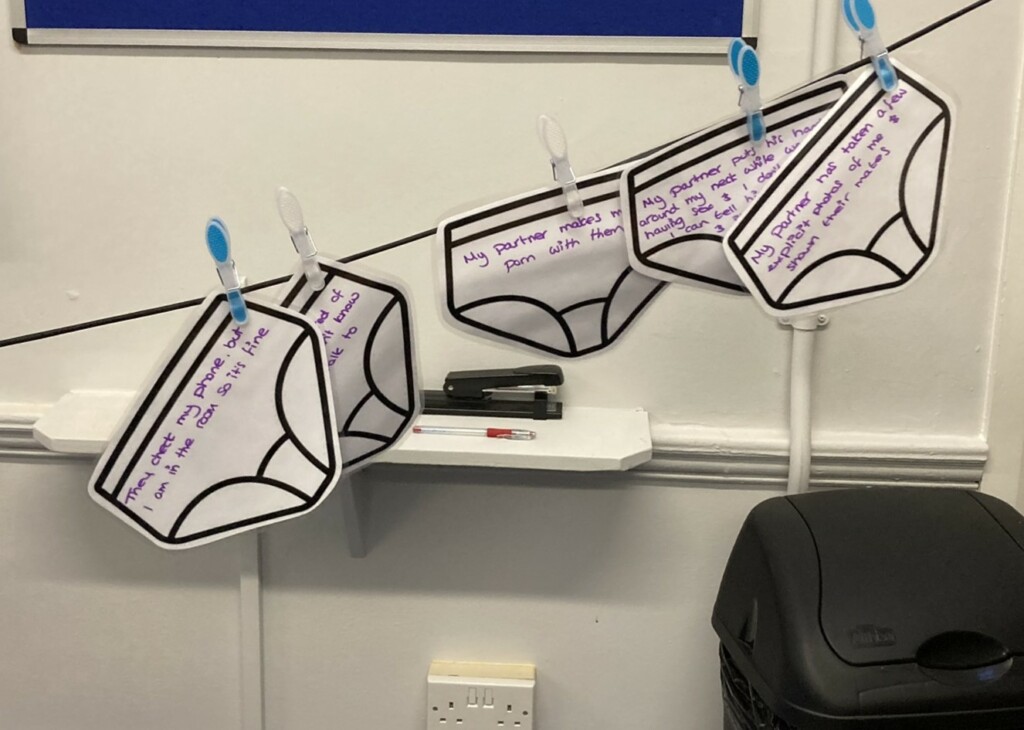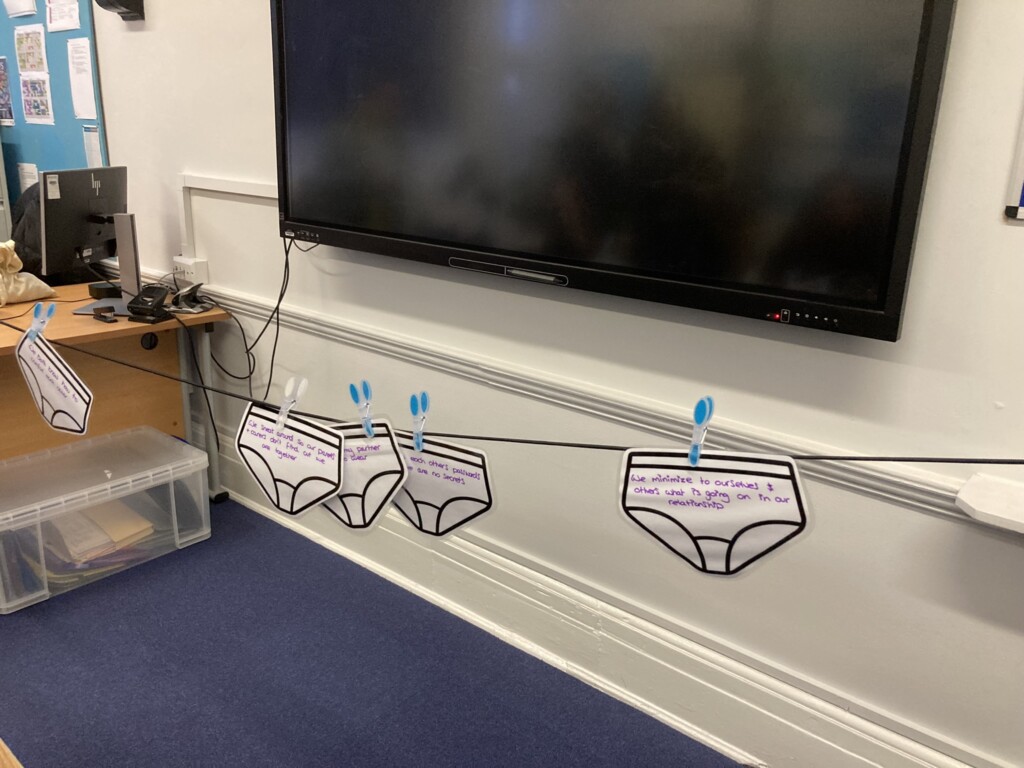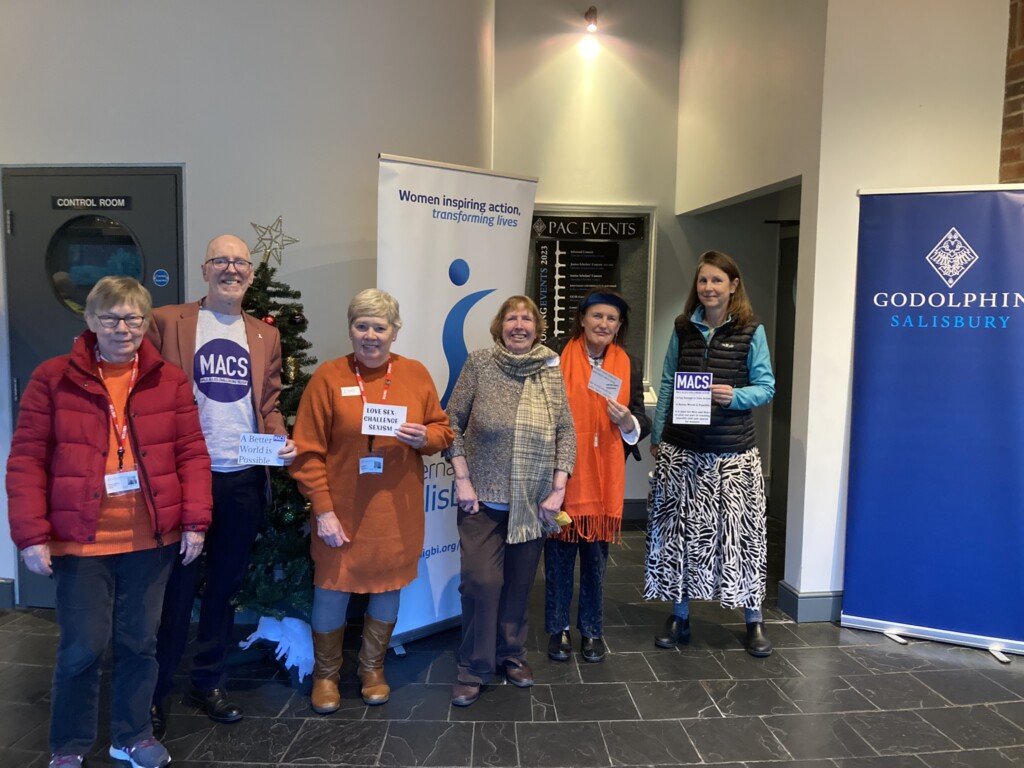One of the outcomes of last October’s Safer Salisbury Conference, organised by Salisbury Soroptimists, was the suggestion that a Schools’ Forum should take place. This would give young people a chance to voice their opinions and take action in their own schools to promote zero tolerance of unacceptable behaviour towards women and girls. Godolphin School volunteered to be the host of this initial conference and eight schools were represented with one apology.
This Forum was to present to those schools unable to attend the last conference, our idea that action could be taken within Salisbury to improve safety by working with young people. This Forum introduced some of the organisations working towards our goal; including the night time economy, CCTV, Wiltshire Police, the Street Pastors, Stars, Alibare and Everyone’s Invited. Ultimately we want to encourage young people to engage and mentor each other as well as sharing their ideas.
Prepare for a night out
Participants were reminded to take their own safety in their hands by preparing for a night out: eat something substantial, charge your phone, plan how you will get home, stick with your friends, look out for your friends and drink plenty of water in between alcoholic drinks. Also know who to turn to if you find yourself in an uncomfortable situation: talk to bar staff or door staff at the venue, use ‘Ask for Angela‘, call for a taxi to take your friends and yourself home, talk to community police officers or Street Pastors.
It was pointed out that, because of the pandemic, a whole cohort of young people have missed out on a couple of years of supervised parties and going out which would normally happen post-GCSEs and before leaving for university. They have not had the chance to experience the night economy or drinking alcohol to learn how it affects them or how to handle themselves.
It is vital that more publicity is given to sources of help and advice.
Daytime safety
However it is not all about nights out. Anyone can feel unsafe or intimidated during the day if they are subjected to unwanted or inappropriate attention. There is a scheme called Safe Places which anyone can use; look for the sticker in a shop, restaurant or pub window. These are places where anyone can ask for help or just a moment to sit and collect yourself. Make everyone you know aware of this!
Next steps
Soroptimists Salisbury asked everyone to consider how they could contribute to an event to be held at the Guildhall on 1st October on the topic of Safer Salisbury. We are hoping that young people, in particular, will take part and suggest how they think Salisbury could be a safer city.
2023Event
A second Schools’ Forum was held on 29th November, at Godophin School engaging local young people in dialogue about what action can be taken to prevent violence against women. Young ambassadors from five schools attended and will take back to their schools ideas and conversations from the afternoon.
The afternoon began with Chris Green, who founded White Ribbon campaign encouraging men to take a pledge: Never to perpetrate, never excuse and never to stay silent about violence against women. He has now founded Male Allies Challenging Sexism (MACS) to continue the work. He noted that the government has devoted a huge amount of money fighting terrorism, but that violence against women costs 170 lives on average per annum, compared to 190 terrorist deaths since 2006. Terrorism is defined as: the calculated use of violence to create a general climate of fear in a population and thereby to bring about a particular political objective. Isn’t this what violence against women amounts to?
Chris asked the young audience to image a world where there was no violence against women and what this would mean. The young women piped up: I could go out whenever I wanted, I could wear whatever I wanted, I could go wherever I wanted. Isn’t this the kind of society we all want?
The next question was, what stops this happening? The audience answered: Men’s power and ego, followed by culture, tradition and education. So the solution is in everyone’s hands: we need to change the culture, learn respect and make the world better for everyone. If you don’t think this means you, take the challenge to compare with a partner how you split the tasks involved in childcare, housework or contraception. Is the responsibility and action equal? How do you view young women going out in skimpy outfits? Did you know that they don’t welcome your comments about their clothes or bodies?
Is the relationship you have with your partner healthy? This was the second big question of the afternoon. STARS, (Sexual Trauma and Recovery Services) held two workshops engaging the young ambassadors in discussions about consent, dispelling some myths and examining what constitutes consent. The second part was looking at behaviours and whether they should be part of a healthy relationship or not. This took the form of pinning the examples on a washing line, grading them from healthy to unhealthy with a ‘depends’ grey area in the middle.
The third talk was about the toxic effects of pornography, which is accessed either intentionally or accidentally by more than half of teenagers, rising to 80% among 16-17 year olds. Pornography affects relationships in many ways, often making real sex seem less enjoyable, suggesting what is filmed is normal, and causing doubts of self-image. It is reported that 90% of pornography shows violence of some kind, thereby ‘normalising’ violence as part of sexual relations.
To finish the afternoon a film by L’Oreal on bystander training was shown. This encourages people to be active and not stand by while unacceptable behaviours are taking place. The training is available online via the Suzy Lamplugh Trust. After the film the young ambassadors were invited to meet various organisations involved in keeping us all safe, which included MACS, Alice Ruggles Trust, FearLess, Wiltshire Constabulary, Street Pastors and STARS.
The aim of the forum was to stimulate conversations about action to stop violence against women. It’s not a just women’s issue, men are the perpetrators and they can do much to help. They can start by taking the White Ribbon pledge and joining others such as the Welsh Rugby team, Fulham and Wolves Football Clubs and other individuals who have already done so. You can get accreditation for your workplace or sports team as well as taking the pledge as an individual. There are 60,000 men who have taken the pledge in UK, but shouldn’t there be many more?








